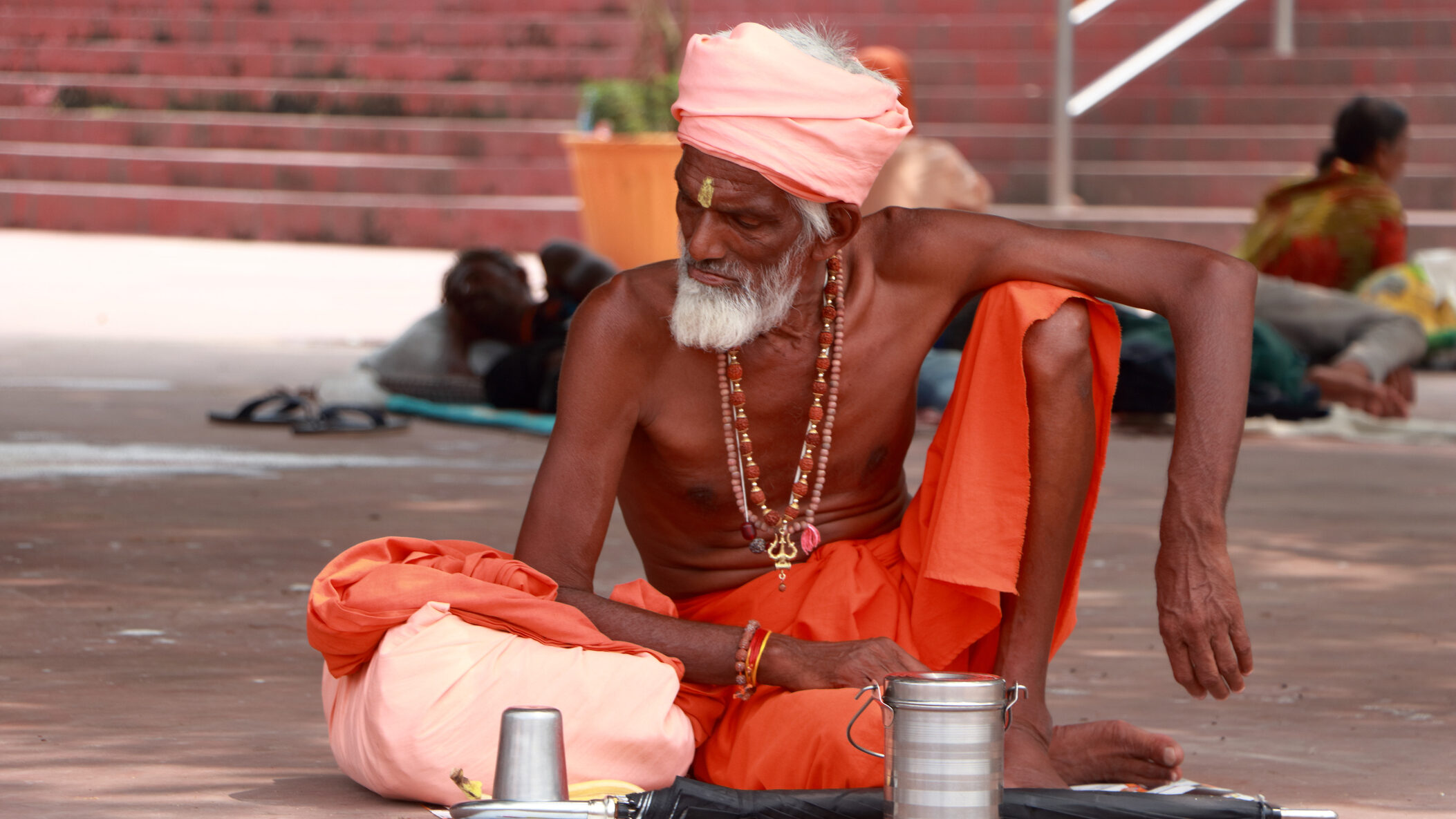
A devotee who is thus attached to the worship of his guru doesn’t need to practice any worship of the Supreme Lord.
Jīva Gosvāmī, Bhakti Sandarbha, 237
What do we see when we see the guru? What do we hear when we hear the guru? What do we feel when we touch the guru?
The Sanskrit syllables gu-ru literally mean ‘remover of darkness’. In other words, the guru is not someone who gives something, some gift of knowledge, of mercy, or enlightenment. The guru is someone who takes something away. The guru is not a source of enlightenment or wisdom but rather one who clears away the blockages to the knowledge or wisdom we already have.
It is remarkable then that gurus we hear of or meet are often known to be extraordinary human beings: charismatic speakers, brilliant scholars, wise counsellors. We are made to understand that the guru represents an abundance of something, a wealth, an opulence. The guru, we are told, is a man or woman to be valued and venerated, to be worshipped with material wealth, to be honoured for their material value through material means.
The contrary is the case. The guru is everything because the guru is nothing, sublime and sumptuous nothing. The guru embodies clarity, purity of feeling, purity of thought, simplicity, humility, softness, and ease.
The essence of the guru is not to be somebody special but rather to be nobody at all: pure form, pure shape, pure contour, pure flow.
The guru is not one who knows, who judges, who gives, who takes. The guru is not a gate-keeper for the divine. The guru is the gate itself, the space through which divine life flows. The guru is the passage through which the divinity of life is revealed—not created, not invented, not constructed, but shown. There is one place to search for the divinity of one’s own life, and that is in the eyes of the guru. The eyes of the guru see only the soul, see only our soul.
And by being seen, we can see. When we are seen as souls, we see as souls. We understand that we are souls. And we understand that we are souls in relation to the endless, eternal love of the universe.
The guru is a relation, the endless flow of all good things that, having been given one hundred million lifetimes before, will always be given, will be given so completely and fully, that reality itself must simply be understood as a gift.
Guru means ‘yes’. The remover of darkness understands and shares the reality that the function of material consciousness is to say ‘no’. And that by tearing away the layers and layers of coverings, teaching us what we cannot be, cannot know, cannot feel, the guru says a resounding ‘yes’ to the universe.
The guru is not the flesh and blood we see before us. The guru does not possess any special gifts; rather, he possesses nothing at all. He possesses nothingness, understanding that this nothingness is the place of shaking off the chains of our hearts. The guru is not this body.
The guru is not material at all. For the guru is a soul, a pure soul. The essence of the guru is not their extraordinary material qualities, as remarkable as these might be. It is the purity of the soul that is made present through material existence. The guru is a messenger, a two-way messenger.
Like all souls, the guru’s soul is divine, a part and parcel of God. But unlike the souls of ordinary devotees, who walk day by day the path of spiritual purification, the guru is not God—as many might think, or wish. But the pure soul of the guru is the closest most devotees, in this life and in this form, will come to pure divine spirit.
The guru is not the goal of our practice. The guru in material form is to be respected and honoured, listened to and obeyed. But not because the guru is everything, but rather because the guru is nothing, pure humility, that is to say, pure love.